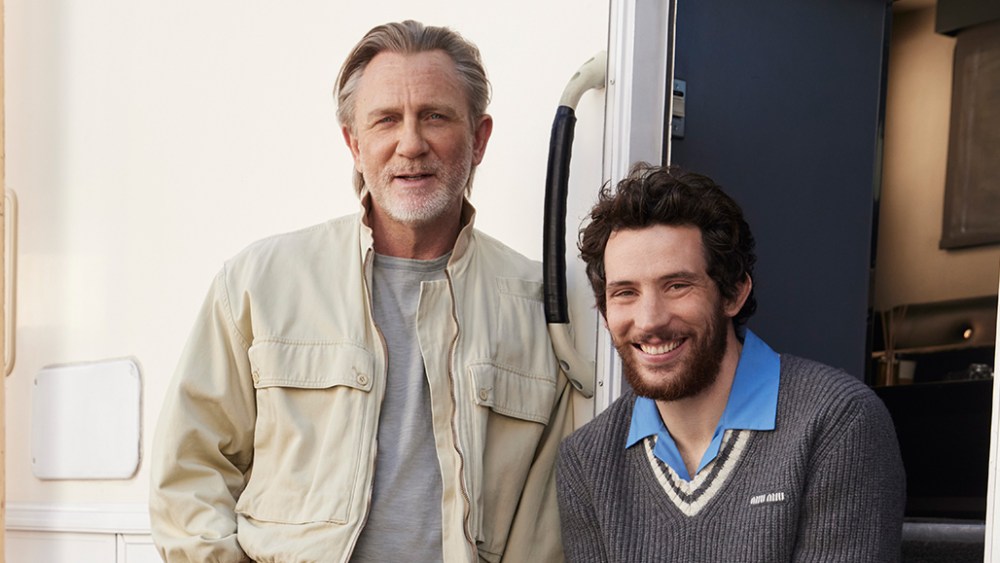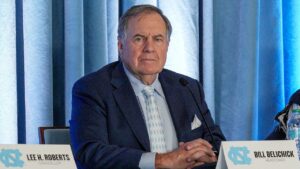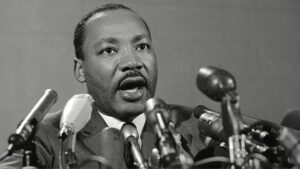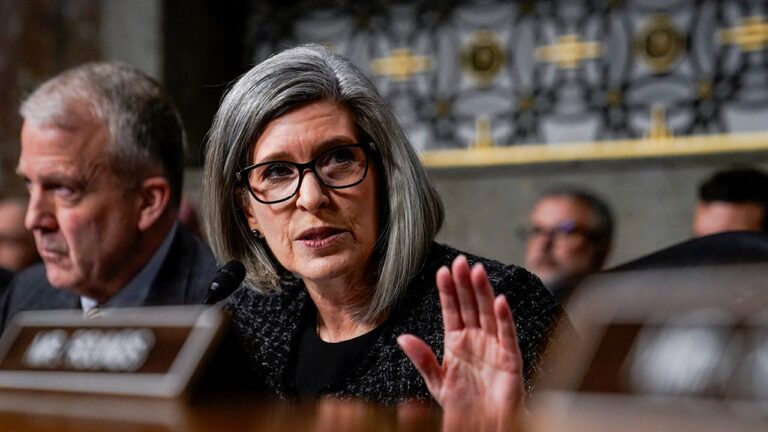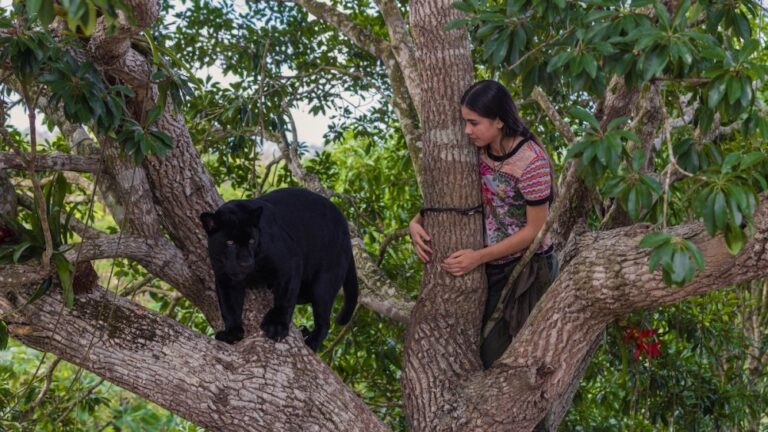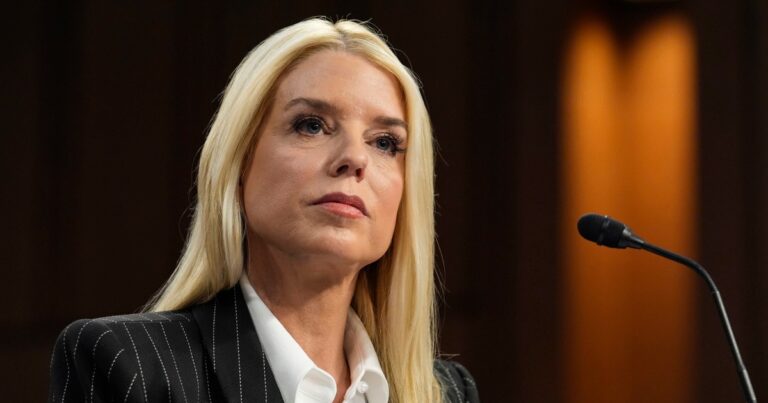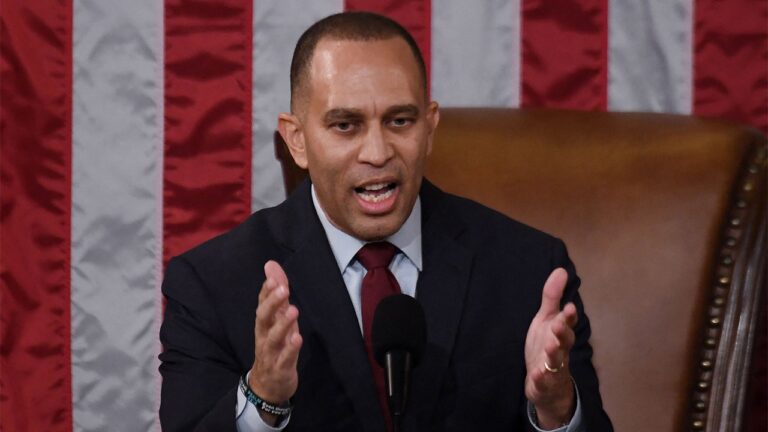The director Luca Guadagnino has an eye for leading men. This past year, Guadagnino put Josh O’Connor through a complicated game of sex, betrayal and tennis in “Challengers,” written by Justin Kuritzkes. And the director took Daniel Craig on a journey through the emotional depths of “Queer,” based on William Burroughs’ short novel. O’Connor and Craig, both known for playing iconic Brits — the first as Prince Charles in “The Crown,” the other in the five most recent James Bond movies — spent this past summer working on the next installment in Netflix’s “Knives Out” franchise, “Wake Up Dead Man,” which will stream on the platform next year.
DANIEL CRAIG: Where did you first meet Luca Guadagnino?
JOSH O’CONNOR: I met him at his favorite hotel in London.
CRAIG: Claridge’s?
O’CONNOR: Claridge’s. I got a text from our friend Jonathan Anderson saying, “Do you want to come for lunch? I’m with Luca Guadagnino.” I was out and about in London, and I cycled to Claridge’s — I don’t know what went on in my head, but I forgot that I was meeting with Jonathan Anderson and Luca Guadagnino.

Alexi Lubomirski for Variety
CRAIG: That’s not like you. You’re normally so together. I met him at a party — incredibly briefly, easily 10 years ago, if not more than that — in Rome, in one of those apartments that overlooks the Colosseum. Luca introduced himself, and I pretended to know who he was.
O’CONNOR: Was “Queer” the first discussion about working together?
CRAIG: Yes, it was. My agent, Bryan Lourd, had been talking with Luca about this. Luca says that he didn’t think I would do it. Little did he know: I think I might just have said yes to anything. So you met him at Claridge’s. You kept in touch.
O’CONNOR: Yeah. The “Challengers” thing was quite weird, because I was living in New York with no friends. I’ve spoken to you about this before.
CRAIG: You’ve droned on about it.
O’CONNOR: If only I’d known you then. You’d have hated it. But then my agent set me up on a friend date with Justin. At that point, Justin was writing his plays. He had a YouTube channel.
CRAIG: What’s it called?
O’CONNOR: I can’t remember. I’ll find it for you. It’s mad.
CRAIG: Justin’s Japes.
O’CONNOR: We can spitball a few more off-camera. But he’d written this feature film script, and he sent it to me. I read it, and he said, “Which of the characters do you like?” At this point Luca wasn’t involved. I said neither. They’re both brilliant tennis players — I just didn’t see myself in either of them. But I said it’s brilliant and good luck to them.
CRAIG: What about the tennis stuff? You thought that’d be easy?
O’CONNOR: You’ll know this because we’re both British actors who trained in drama school. And when you do drama school, you know that thing where you say …
CRAIG: … I can do anything. Speak French and horse ride.

Alexi Lubomirski for Variety
O’CONNOR: Anything. I once had an audition for a play, and I needed to know how to play an instrument. I tried to learn the harmonica in a day. I didn’t get the part, obviously. So tennis? I was like, yeah, no problem. But at that point, I’d never worked with a trainer or been in a gym for very long for my entire life. Every day, we were doing two, three hours of training and two, three hours of tennis. And I was wrecked.
CRAIG: Did you kind of enjoy it?
O’CONNOR: I loved it. I had the time of my life and didn’t keep it up.
CRAIG: When I first started doing the Bonds … Listen, I used to go to the gym a lot. But in my 30s, I abused my body more than I probably should have done. All of a sudden, I get this part [in “Casino Royale”], and I’m like, oh, I’ve really got to get fit for this. I did the whole thing. But at the end of the movie, I’d been doing it for so long that I stopped. And then another Bond movie comes up, and you go, oh, I’ve got to get fit again. That cycle, I had to break. I just started keeping fit regularly, so I didn’t stop for long periods of time. It’s really fucking boring talking about working out.
O’CONNOR: I told you when I saw it: I thought “Queer” was a total masterpiece. It feels so different to the work you’ve done recently. Was that a conscious decision?
CRAIG: I don’t think it was conscious. You’ve worked with Luca: There’s an atmosphere he creates on a set, which is one of brilliant chaos, but also absolute focus. It’s Italian. It’s Sicilian. Which, for a tight-arsed Englishman, is very liberating. It doesn’t mean that he’s not absolutely laser-focused on everything. And the character just felt so multifaceted, multilayered. He’s got a gun on his hip and walks around a macho guy, but he’s Burroughs. I threw the kitchen sink at it.
O’CONNOR: He feels deeply insecure, and yet the way he walks around is completely confident.
CRAIG: But that makes so much sense to me. That’s the artifice of masculinity.
O’CONNOR: The cool thing about Luca is, he’s not afraid to take some source material and stretch it out and make it into something through his eyes.
CRAIG: Obviously, I love the end of [“Challengers”]. I love where it goes to: All of that setup, and you get to the moment. Which is what Luca’s about — he wants to hit the moment of love. And you see a love between the two guys that trumps everything around it. I’m just a sucker for it. What else is there?
O’CONNOR: I think that’s what was going on in this film: Yes, there’s the tennis backdrop, but the desire these three people had for each other that’s torn apart … and there’s an invisible magnet that’s dragging them back together. That was definitely a Luca component that was bubbling underneath.
CRAIG: The scene in the hotel room, where they don’t have sex with each other, is the biggest cock tease in movie history.
O’CONNOR: The reality is that those intimacy scenes are the least sexy scenes you can do. I feel far more vulnerable doing an emotional scene.
CRAIG: The sex is the least interesting thing in the scene. You have to play the truth of it the best you can. The only thing that’s going on is in the heads of these people; if you can’t see that, then the scene is just gratuitous. What are they doing there? What’s affecting them? All of these things. You owe it to a sex scene to have all those things in. Otherwise, it’s an excuse to get people naked.
O’CONNOR: The reason they’re there is to serve the story.
CRAIG: Did you laugh?
O’CONNOR: Me and Mike [Faist] got the giggles because we’re both kissing Zendaya, and gradually we end up kissing each other. She’s just backed out and she’s watching. We had this moment of kissing for a while, and then opening our eyes and seeing that it’s just us — that did make us giggle.
CRAIG: This summer we did “Wake Up Dead Man.”
O’CONNOR: I’ve never experienced anything like it on a film set. We were all in each other’s pockets for three months. Particularly you and me. Most of the time you and me.
CRAIG: Like it or not.
O’CONNOR: The trailers! That’s the best trailer I’ve ever had in my life. It’s better than my flat in London. And I spent a lot of time knocking on your door.
CRAIG: “Don’t say anything. It’s Josh. Just hide behind the sofa.”
O’CONNOR: One other question I wanted to ask is about those movies and how they’re seen. Because they’ve been so successful in theaters. Does that bother you?
CRAIG: The first one was such a surprise, and it was a fully released film. It made lots of money and things. And, listen, I’m not knocking where it’s gone to and where it is. But it saddens me that there isn’t more of a theatrical moment for these movies. These movies seem to have a cross-generational appeal. And the idea that families go and see that movie just fills me with massive joy. It’s not just a niche movie we’re doing here — it’s for everybody. And the fact is, to have a collective experience in the cinema, blah, blah, blah. I know everybody says this, but it’s the truth.
O’CONNOR: It is.
CRAIG: I’m glad people see it in their homes. I’m glad people watch it together in their homes and have fun doing it. That’s absolutely great. But there’s nothing quite like going to the cinema. Laughing in a cinema is the best thing in the world.

